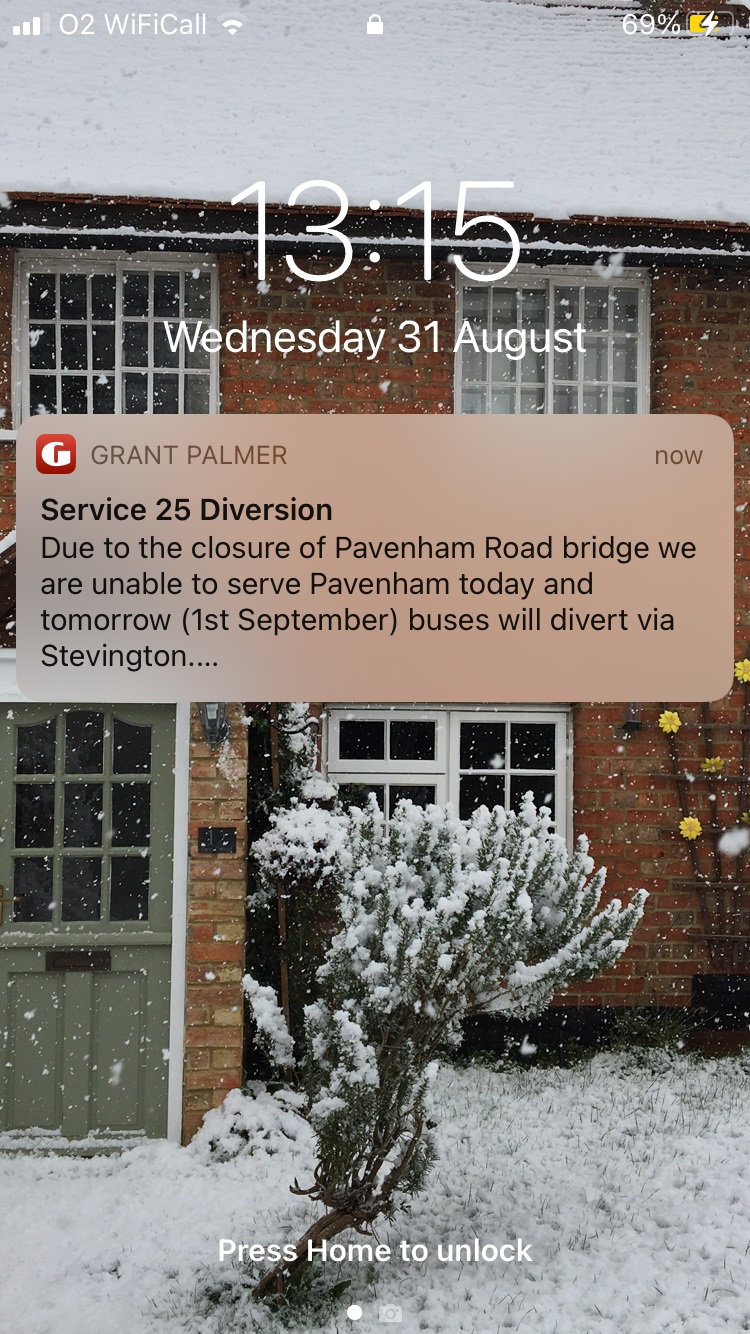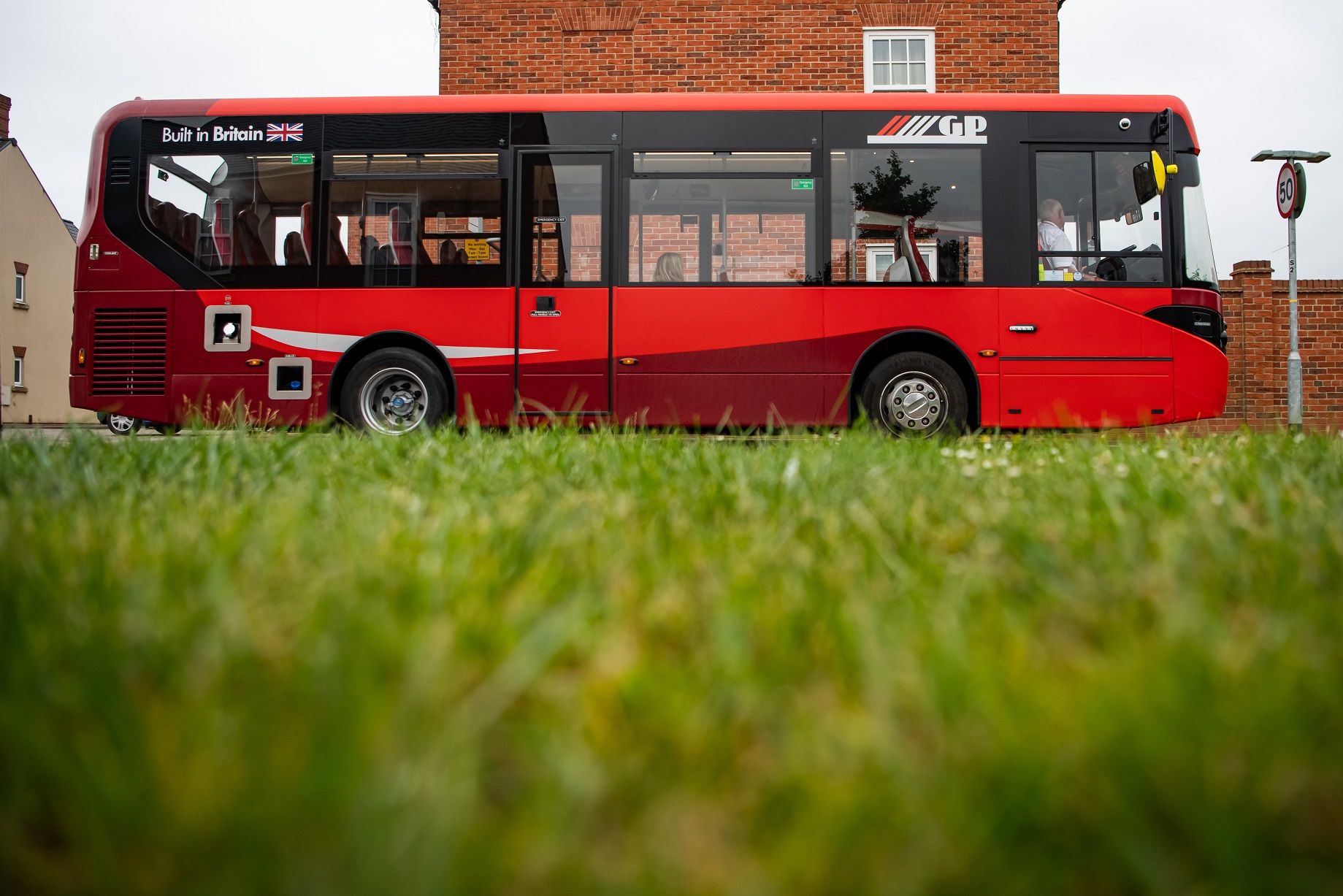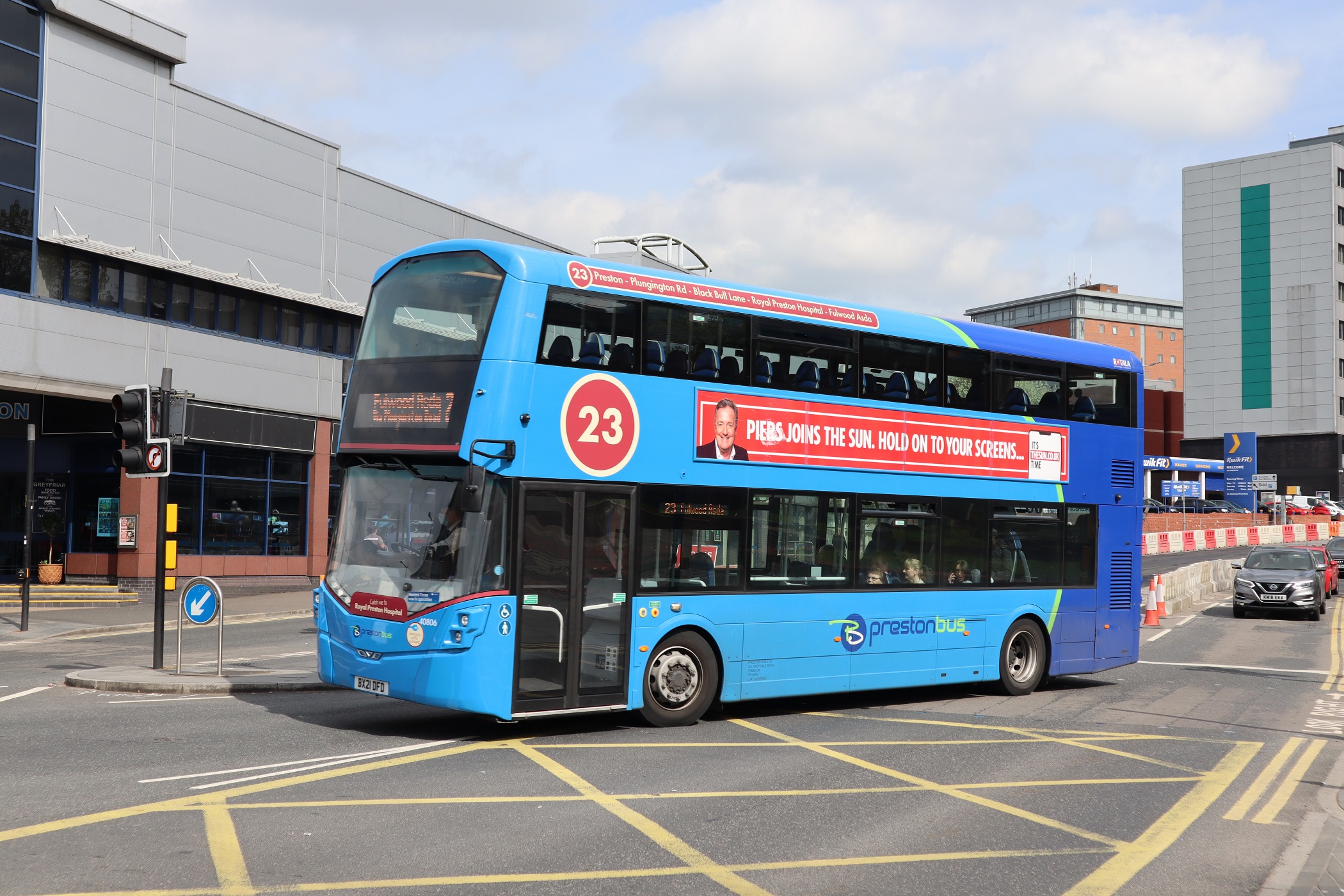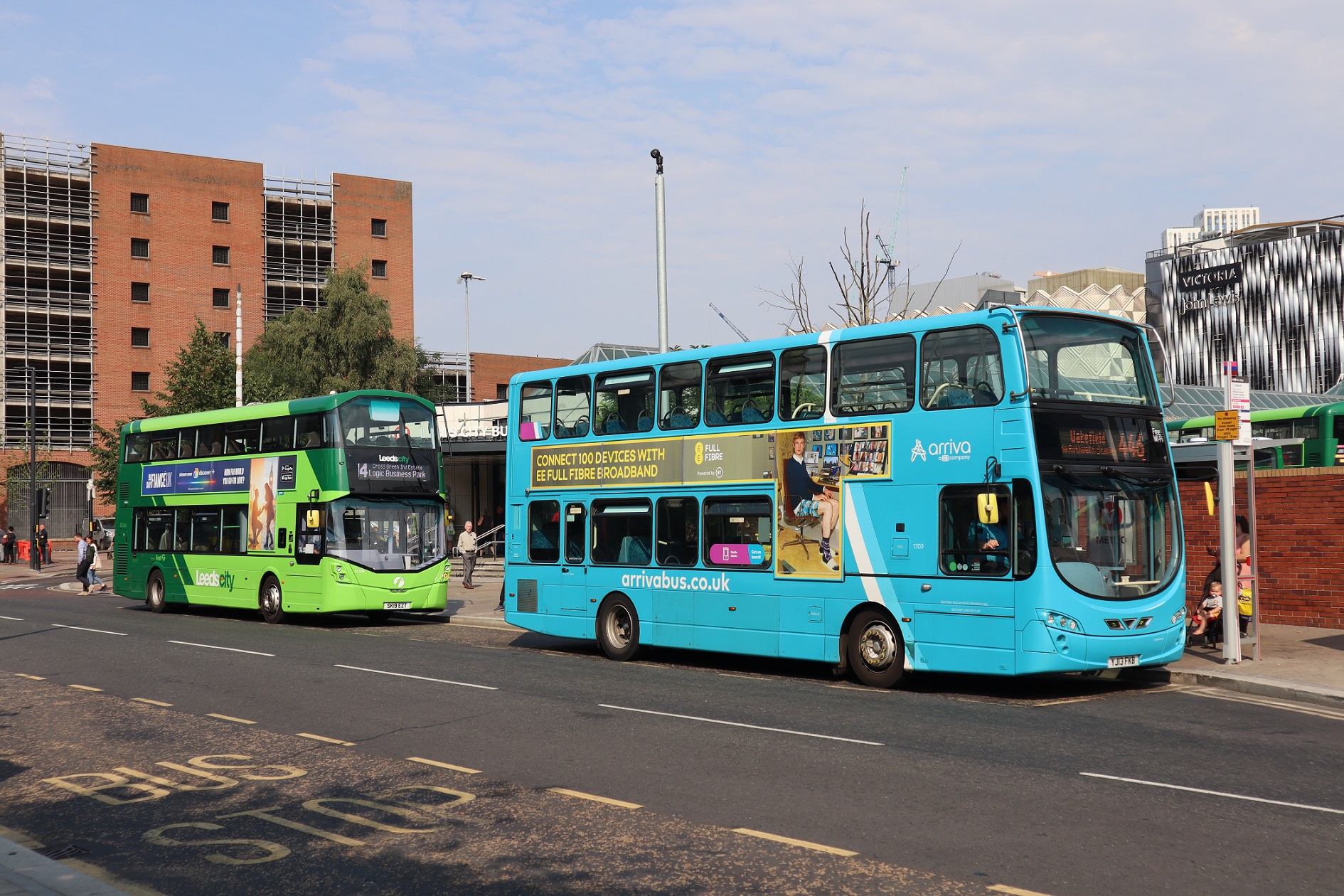The benefits of using bespoke push notifications to communicate with customers has been harnessed by Rise Digital Media. It has added the facility to its BusHub platform for operators and associated passenger apps and believes that it is the only coach and bus industry technology agency to offer such a service.
That allows push notifications to be sent to users that opt in. Notifications arrive on a targeted basis; while the operator can issue what Rise Operations Director Chris Nice terms as “network notices” to all its app users that accept notifications, a more granular approach can also be selected. That allows messages to be targeted by route, area or region.
A further avenue for push notifications is sending them to an individual. Communication in such a scenario remains one-way, but Chris notes that it is a useful method via which to inform a customer that they have left something on the vehicle or that the driver knows that they will need assistance.
When any notification is sent, operators should treat it as a text message, he continues. “They have a 250-character limit, no option to attach a picture and no means to include any links. But all data is captured, allowing the sender to review delivery reports as far as each individual user.”
Acceptance of the concept growing, says Rise DM
Push notifications are an increasingly popular means of communication with customers in many industries, but Chris stresses that they should not replace other channels. Instead, they should complement those outlets.

Many people are now familiar with the push notification concept. That is the reason why members of the coach and bus industry should consider adopting it, Chris continues.
Rise first saw the opportunity for push notifications in the sector during the COVID-19 pandemic, when service changes were sometimes frequent. The concept was introduced after operator feedback.
Two items are key to the successful use of push notifications. One is ensuring that as many of the operator’s customers as possible have them enabled; and two is finding a balance in how often notifications are sent.
Should they be too frequent, there is a risk of customers ‘tuning out’. If that happens, then when one arrives that is relevant to them, its impact may be lost.
A further important consideration is the tone in which notifications are written. “Many alerts are likely to be about alterations to services and individual journeys, which are not matters that all passengers will appreciate,” Chris continues. “When notifications are compiled, they should always be as polite as possible. But the channel can also be used to share good news. For example, an operator could have been nominated for an award, and it may wish to tell its customers.”
Among other benefits to push notifications are that they do not get caught in spam filters, as email communications may. When the news being shared could be perceived negatively by the user – such as when a short-notice cancellation is circulated – the one-way nature of push notifications prevents an outing of anger from customers in public, as can be the case via Facebook or Twitter.
Coach and bus users’ enabling imperative for push notifications
Push notifications are only of use if customers have enabled them in the operator’s app. Rise Digital Media advocates publicising the use of notifications via other channels, including on-bus notices and digital means, in the run-up to them being introduced.
Users are also asked upon their first log-in to the app whether they consent to receiving the notifications. If they agree, they will then be ‘pinged’ when appropriate; such receipt is not reliant on them being active within the app.
For the operator, creating a notification is easy. They are asked to select recipients by group and the messages can be sent either immediately or scheduled for a time to suit. All BusHub customers have access to push notifications; a growing number are actively engaging with the channel and others are trialling it.

BusHub is complemented by Rise Digital Media’s NextStop platform. It is targeted towards services including those in the home-to-school, corporate and commuter sectors.
Automated push notifications form part of NextStop for event-driven occurrences such as seat reservations, real-time service updates and ticket renewal reminders.
Parents can be made aware via push notification that their child has boarded a service when QR code ticketing is used. For corporate and commuter services, use of automatic vehicle location data and geofencing means that passengers may be informed that the vehicle is a pre-set distance from them. Use of push notifications via NextStop is different to the bespoke approach through BusHub, but Chris notes that the concept can be equally beneficial though either platform.
Push notifications ‘add value’ to bus passenger experience
Chris adds that the introduction of push notifications represents the latest step on Rise Digital Media’s development programme. The current position with push notifications is “a starting point” that the supplier will develop from.
Part of wider work is the assembly of a panel of operators from various segments that will help to brainstorm future advancements. Such engagement is key for Rise, Chris adds. It does not have a direct relationship with coach and bus passengers, instead relying on its customers to share what is happening ‘on the ground’.
“Understanding travellers’ requirements, and changes to the operating environment, is key if we are to be able to introduce further enhancements, but we are confident that the bespoke push notification concept is something that adds real value for operators and their customers,” he concludes.



























